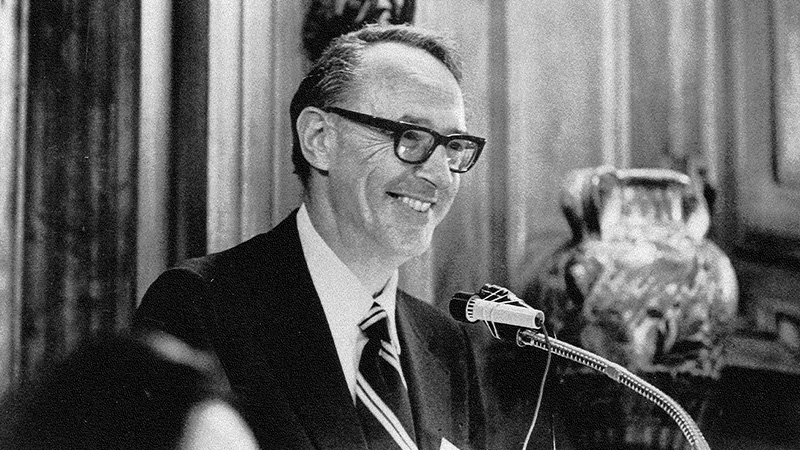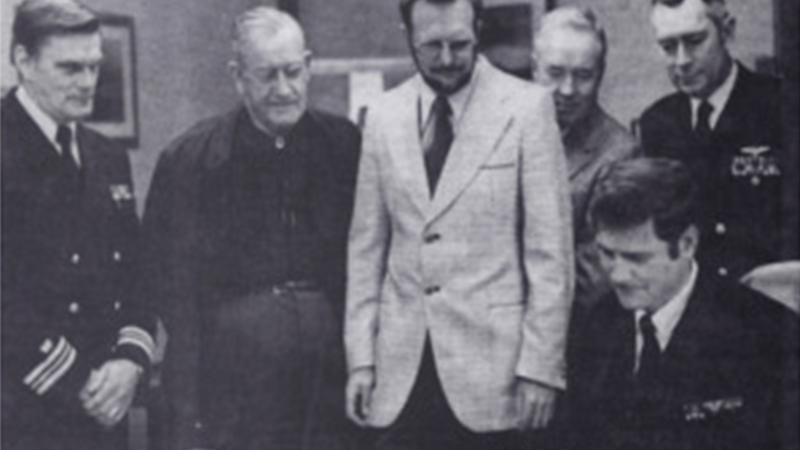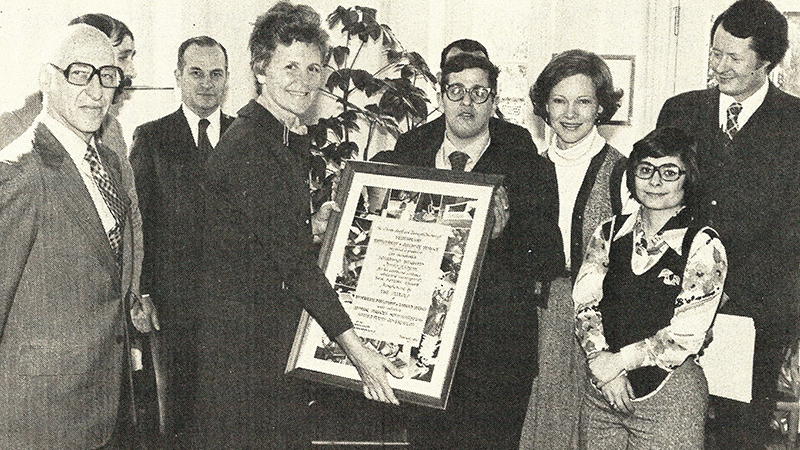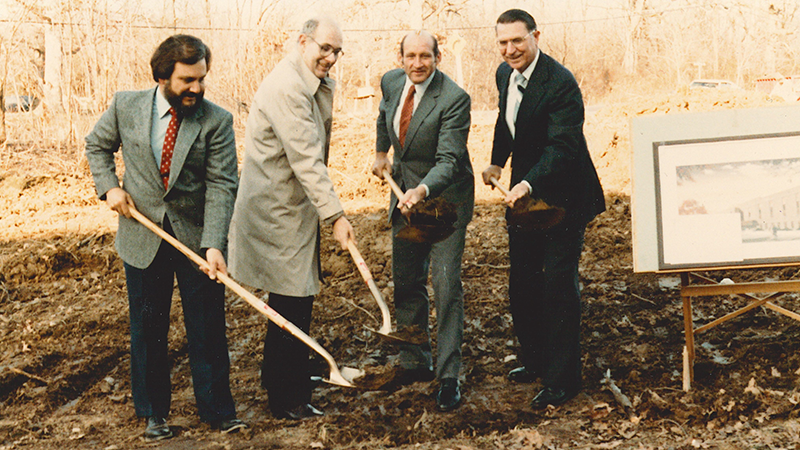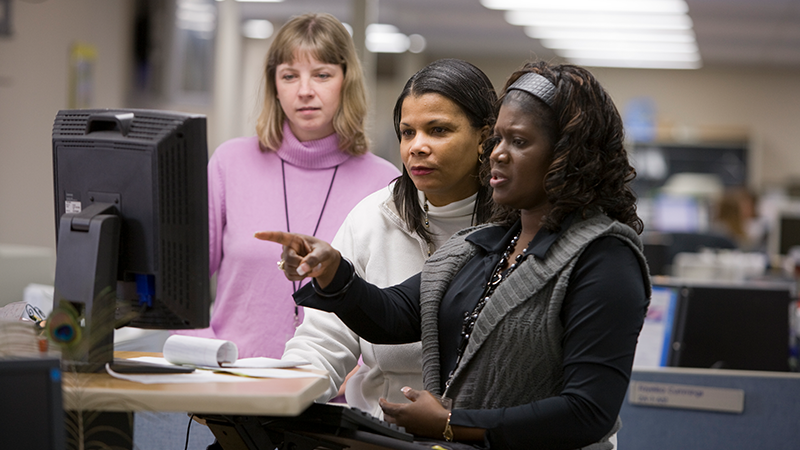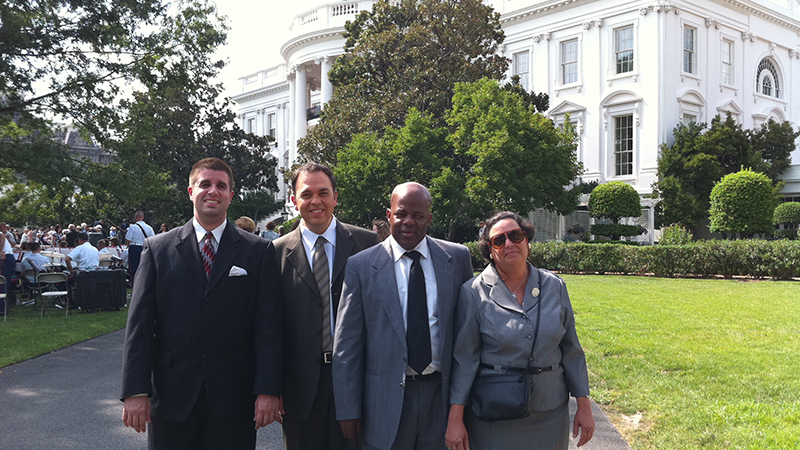1990s
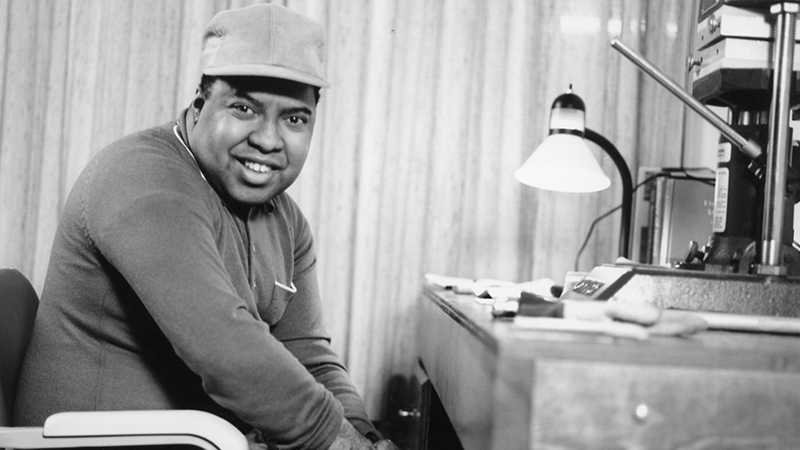
The Full Story
1993
SourceAmerica and its nonprofit agencies employ more than 20,000 people with disabilities.
1994
In 1994, a small group of rehabilitation professionals in Texas, diminished by an enfeebled economy, were mired in Chapter 11 status. The small but resilient group of people with disabilities, along with rehabilitation, government procurement, and NISH (now SourceAmerica) staffers, work to design a plan to enfranchise the operation.
As a result of their combined efforts, the General Program to the Vocational Training and Competitive Employment for the Disabled and Disadvantaged was created. Established as part of this effort, too, was a group called “Friends of the Center” which embraced leaders from the surrounding business community. This assemblage donated countless hours toward one goal—moving the Center out of bankruptcy.
A corporate neighbor, Union Camp, began warehousing their company material at the Center as a show of support and became a partner in the redemption. Another company, Hasbro-Tonka, provided assistance with staff training, business management, and productivity efficiency (as well as almost a million dollars in contract work).
By the end of 1994, trading as the National Center for Employment of the Disabled, that small band of corporate and community partners emerged on solid economic ground providing employment to people with disabilities and quality work to its vendors and friends.
1998
60th Anniversary of the Javits-Wagner-O'Day (JWOD) Act celebrated.
Almost 30,000 people with disabilities employed on SourceAmerica projects.
First total facilities management contract is awarded to Melwood for USDA’s George Washington Carver Center.
1999
In concurrence with the 25th Anniversary of NISH (now SourceAmerica), the collective Javits-Wagner-O’Day (JWOD) family gathered in Washington, D.C. They were there to honor the legacy of the late Senator Jacob K. Javits whose 1971 amendments to the Wagner-O’Day Act provided for the inclusion of all people with disabilities. Prior to the Javits amendments, the Act had pertained only to the sale of products made by people who were blind.
More than 100 representatives from Community Rehabilitation Programs (CRPs) across the country were on hand for the breakfast reception which was held at the Hart Senate Office Building in July. A dozen Members of Congress attended the reception and reaffirmed their commitment to the JWOD Program. Marian Javits, wife of the late Senator, and their son, Joshua Javits, were in attendance to witness the significant contributions that the Javits amendments have made on the lives of thousands of people with disabilities.
CRP staff members and people with disabilities who work on JWOD Projects traveled to Washington, D.C. for the three-day event which culminated in the breakfast legacy reception. During their stay in Washington, the attendees visited their elected officials on Capitol Hill in an effort to further educate them on the importance of JWOD and the support of CRPs in local communities. In total, more than 60 visits were made to members of Congress during the three-day event.
